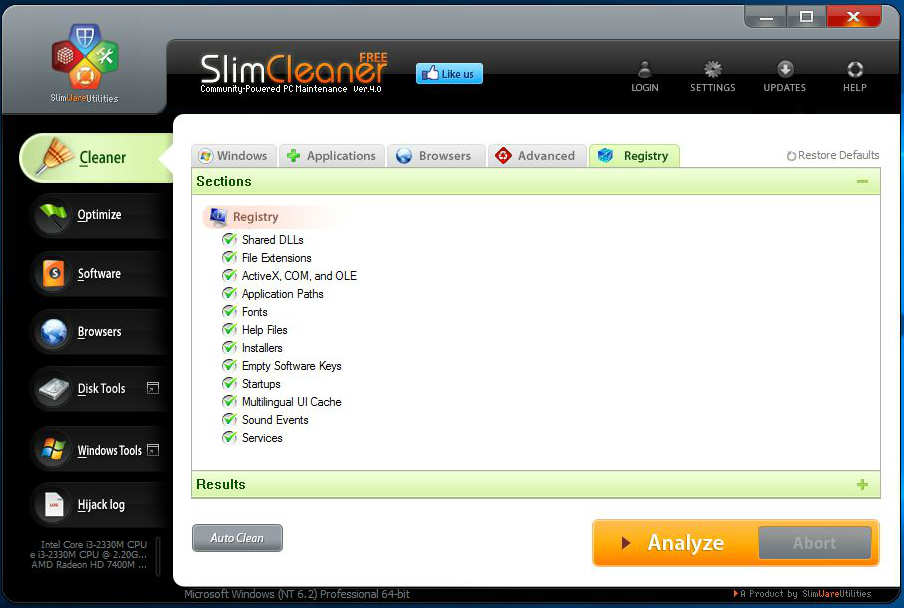
To clean registry junks and keep PC at peak performance, free Windows registry cleaner is of the essence. However, sometimes registry settings will corrupt due to these remains. Settings that are no longer needed will still remain in the registry in case they will be needed again. As long as you take basic care of your Windows computer, you don’t have to worry about your registry.The Windows registry is a database that lists all of the configuration settings that determine how Windows looks and behaves. In summary, forget about registry cleaners and get on with your life. If a registry cleaner tried to be too aggressive so it could clean up as many “errors” as possible, it could easily remove errors that were necessary for an installed program, causing problems. There are so many different registry entries that could be present from so many different software programs that the average registry cleaner put together by a less-than-reputable software company can’t possibly account for them all. We didn’t dwell on this part too much, but registry cleaners can also cause damage. RELATED: Do You Really Need to Regularly Reinstall Windows?

If your computer is hideously slow or crashing frequently, you likely have more problems than a full registry and you’re probably better off reinstalling Windows or refreshing your PC.

Even if you need to uninstall something later, a few registry entries - or even a lot of registry entries - won’t cause a slow down. Rather than run a registry cleaner, you should just be careful about what you install in the first place. We’ve already covered why PCs slow down over time and shown you how to prevent this from happening. So If a Registry Cleaner Won’t Speed Things Up, What Will?


 0 kommentar(er)
0 kommentar(er)
